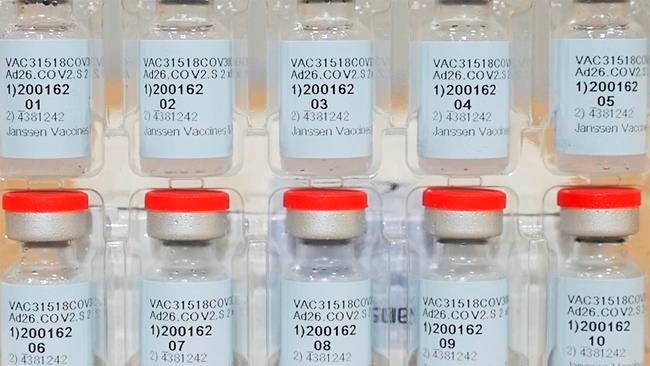OTTAWA — Canada is on the cusp of authorizing a fourth vaccine for COVID-19, raising the possibility that every Canadian adult will be offered at least one dose before Canada Day.
Dr. Supriya Sharma, the chief medical adviser at Health Canada, said Thursday the review of Johnson and Johnson's vaccine "is going very well."
"It's progressing, and we're expecting to have that completed and a decision in the next few days," Sharma said at a virtual news conference from Ottawa.
Johnson and Johnson, which was authorized in the United States last weekend, would join Pfizer-BioNTech, Moderna and Oxford-AstraZeneca on Canada's list of approved vaccines. Pfizer and Moderna have been in use since December, with more than 1.5 million Canadians now vaccinated with at least one dose.
Canada's deputy chief public health officer Dr. Howard Njoo said that with new vaccines being approved and moves by provinces to delay second doses, more Canadians will be vaccinated at a faster rate.
All provinces have indicated they will accept a recommendation made Wednesday by the National Advisory Committee on Immunization to delay second doses of vaccine by up to four months.
The new guidelines say the science shows a first dose is so effective that delaying the second dose so everyone can get a first dose more quickly, is better both for individual protection and to establish herd immunity in Canada.
Canada had been expecting enough doses of approved vaccines to vaccinate every adult with two doses by the end of September, based on Pfizer, Moderna and AstraZeneca all requiring two doses given 21 or 28 days apart.
Canada is in line to get 26 million more doses of Pfizer and Moderna, and at least 3.5 million of AstraZeneca by the end of June. Those deliveries alone would be enough to offer a first dose to every Canadian over 16 years of age by Canada Day.
No vaccines are approved for use on children under the age of 16 yet.
Another 20 million doses of AstraZeneca and 10 million from Johnson and Johnson are to arrive by September, but it's not yet clear how many will arrive by June.
Another 55 million doses expected from Pfizer and Moderna between July and September would more than cover the necessary second doses.
The national advisory panel's recommendation to delay doses is the latest adjustment to vaccine guidelines that some fear may make Canadians hesitant to trust the vaccines.
"We're very concerned about that," said Sharma. "We want to make sure that people have confidence in the decisions that are being made about vaccines."
She said experts are basing vaccine decisions on evidence as it is presented. With more data coming almost daily about the vaccines, including how they're faring as millions of doses are administered around the world, new and changing guidance is not surprising.
"The responsible thing to do is to make sure that we get all that information and incorporate that into our decision-making," she said.
"So definitely, the messaging would be simpler if we had one set of data and we had one message, and it never changed. But that's not what science does."
This report by The Canadian Press was first published March 4, 2020.
Mia Rabson, The Canadian Press



